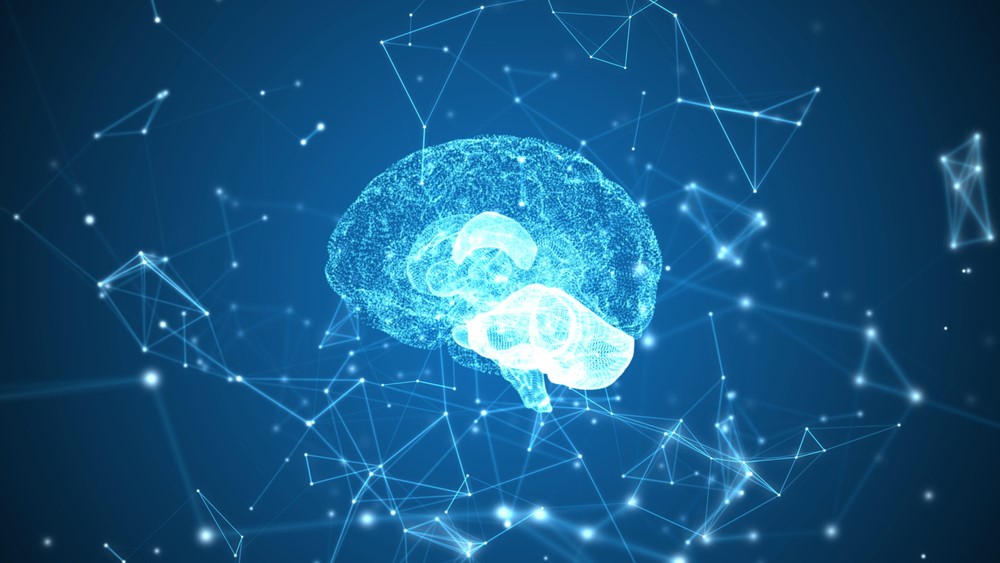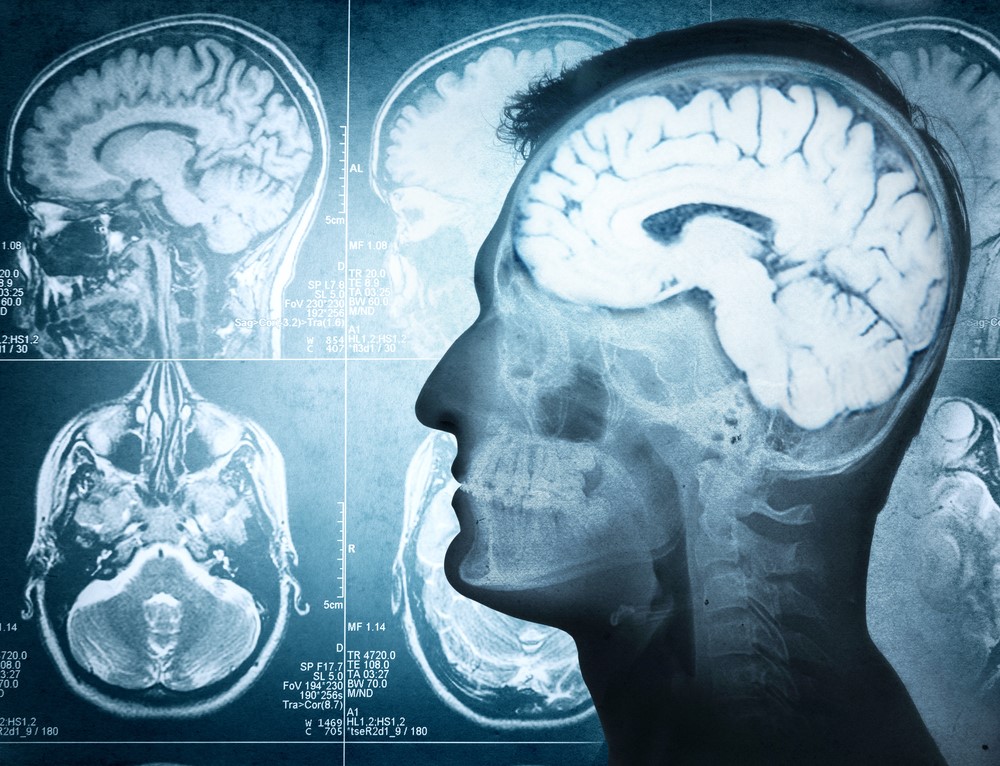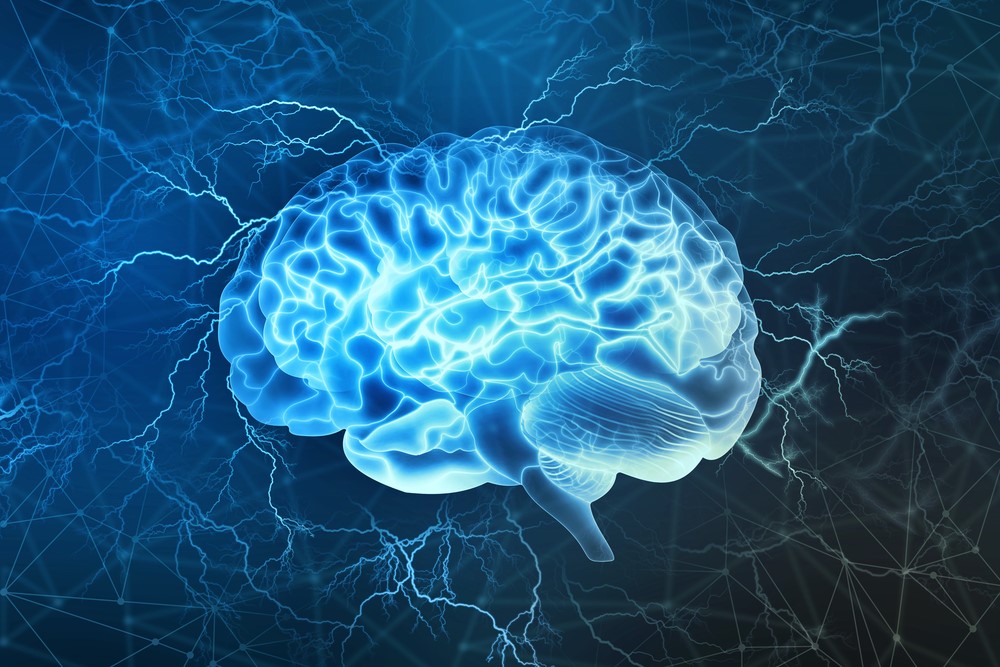How Does Memory Work?
Memory works through three stages: encoding (capturing and processing information through your senses), storage (saving it in short-term or long-term memory), and retrieval (accessing stored information when needed). You can enhance your memory by getting quality sleep, engaging in regular exercise, maintaining a balanced diet, and focusing your attention on what you want to remember.
When we look at a photograph, what do we see?
People? A place? Perhaps our most recent selfie?
Regardless of the photo, we like to think we're gazing upon a memory. In reality, our focus is only on a singular moment in time. True memory is stored within our brains.
We can access a bevy of data that helps form a complete picture of the circumstances surrounding the photo versus the single shot we took. Names of the people in the photo. The place we took it and how we got there. How we felt that day. Everything we saw. The sounds and smells we experienced.
Even though I knew how to use the camera, it came from memory.
How exactly does that work? How do we retain and then access all of that information whenever we need it? What, if anything, should we do to keep our memory active, sharp, and always ready to take on more?
Table of Contents
What is Memory?

Neuroscience, the study of the human nervous system, which includes the brain, dates back to the 18th century. However, there's evidence that neuropsychology, the specific study of the brain and its functions, has roots in ancient times, dating back to Hippocrates (from a medical standpoint) and Aristotle (from the philosophical side).
Since then, hypotheses about the mind and how it functions have come and gone. However, there's little denying the fascination that humanity has with the most complex organ in the human body.
Within our brains, the function of memory—what it is, how it works, and how to enhance it—is almost at the forefront of our desire to understand the full scope and capabilities of the human mind.
Today, we can clearly define memory as the mind's capacity to encode, store, and retrieve information. That information is our life experiences. Beyond that, those experiences or saved data are used to guide and inform our future actions.
How Does Memory Work?

Let's revisit our photograph example and the use of the camera. At some point in your life, you gained the knowledge to point, click, and shoot to capture specific moments. Regardless of the type of device you're using, you can always rely on those three basic tenets to take a picture.
Point, click, shoot.
In its most basic functions, that's how memory works. As with all things related to the brain though, it's not so simple.
Modern scientists have a far better, albeit incomplete, understanding of how we process and manage the memories we form each day. Referred to as the three stages of memory, it's one of the critical areas where we've made significant strides in knowing how we process, store, and retrieve memories.
The three stages of memory start with encoding:
Encoding
The process of memory begins at the point of information acquisition.
Once we take in data (for example, the name of an individual we just met), it's changed into a format more efficient for storage and retrieval. The encoding process utilizes our senses to make this happen.
Using the meeting with a new individual as a guide, these are the four ways the information can be coded:
| Encoding Type | How It Works | Example |
|---|---|---|
| Acoustically | You use an auditory method, such as repeating the person's name verbally (or in your head) to absorb it now and recall it later | Saying "Sarah, Sarah, Sarah" after meeting someone |
| Elaborative | You utilize knowledge you already possess to retain new data by drawing connections from known items | Remembering "Sarah works with John at the company where I shop" |
| Semantically | You place the memory in a specific context or setting | Associating the person with the restaurant where you met |
| Visually | You call upon visual cues, such as physical features or clothing, to develop a mental image | Remembering someone's red scarf or curly hair |
This process, according to scientists, occurs in both the hippocampus and the frontal cortex of your brain. Similar to saving a computer file, these areas review the data, determine if it's worthwhile, and if so, move it to the correct area of storage.
Storage
After a memory is encoded, it is then stored so that we can access it later. When most people think about how memory works, storage is typically what they most often reference.
It's commonly believed there are two types of memory storage: short-term and long-term.
Short-Term Memory
Also sometimes referred to as working memory, short-term memory is immediate. It's the place where we store information for a limited time (typically a few seconds to about a minute) before it decays and is forgotten.
Not only is the duration brief, but the capacity is also limited. Research by psychologist George Miller in 1956 found that most people can hold about 7 items (plus or minus 2) in their working memory; however, modern studies show that this number varies based on the type of material and the specific task.
Let's go back to our name example and assume that person is a customer service rep you're speaking with to resolve an issue. They tell you their name, and you repeat it for encoding, but it's stored for only the duration of the time you're speaking with them.
In other words, short-term memory allows you to quickly obtain the information you need now, but probably won't later. To understand how quickly something can be forgotten, if you don't repeat the person's name, you may end up asking them to repeat it at some point during the call.
Now, if the person is someone you may have repeat interactions with, information about them will be transferred to long-term memory.
Long-Term Memory

This is where memories are stored for a longer period.
The transfer between short and long-term memory occurs through repetition or continued interaction with and use of particular data points. For instance, the more often you interact with someone you have just met, over time you'll commit more specific details about them to your long-term memory (such as how they talk, how they dress, their likes and dislikes, etc.).
It primarily comes down to you deeming the information as significant and committing it long-term so you can recall it as needed. In contrast to the extremely narrow shelf life of short-term memory, long-term memory has a much larger capacity and can last for years or even a lifetime, though the ease of retrieval and susceptibility to decay vary greatly depending on factors like how well the memory was encoded, how often it's accessed, and individual differences.
Retrieval
The final stage of memory is retrieval.
This is where you call upon the retained data in your mind for use in a particular situation or scenario. For example, the use of the camera we referenced at the start of this article, or re-engaging the person you met in our latter scenario at a later date.
When recalling a memory, there are two ways to access it: recall and recognition.
Recall occurs when you access information directly from memory, without any sensory or associative cues. An example most often cited with this form of retrieval is when answering a fill-in-the-blank question.
Recognition requires a cue or trigger to access the memory. If you were to encounter a stranger who resembled someone you had previously dated, it would likely elicit memories of the prior relationship.
Although retrieval is relatively straightforward, failure to recall specific memories can prove difficult to accept. Often, the inability to remember something stems from improper encoding, typically resulting from insufficient attention or distraction.
In other instances, the code and cues may be slightly off, resulting in a mismatch of information—such as trying to remember a favorite restaurant but mistaking it for another.
A person's memory is far from perfect. We often can't put a name with a face, frequently misquote favorite movies, and struggle to recall even basic information we should know (do you know when your car inspection sticker expires or your license plate number?).
However, those things are normal. Complacency and poor habits can have a detrimental impact on your mental well-being, severely limiting your ability to store and recall memories. Even though our brains and the memories contained within will eventually start to deteriorate with age, there are numerous ways to keep your memory sharp for many years to come.
How to Improve Your Memory

Like other areas of your body, your brain requires regular maintenance and upkeep to remain healthy and functional. These same habits will also improve your memory.
Rest Your Mind
Perhaps more so than many other brain-boosting techniques, sleep is among the most essential factors for your memory to operate at its best.
Many of us don't get enough sleep. Some of us get an alarmingly small amount. This isn't a good pattern if you hope to keep your memory storage at a maximum level.
Think about days when you don't get an ample amount of shut-eye. Aside from constant yawning and dragging your feet, your mind operates in a state of mental fog. Recalling simple thoughts is a burden. Accessing your long-term memory is difficult at best.
To ensure you get the most out of your sleep, avoid TVs, tablets, and smartphones when it's time for bed, as they interrupt your body's natural inclination to fall asleep. Stick to a regular routine of when you go to bed and when you wake up.
Similarly, give yourself breaks during extended periods of study or while working on an important project. Not only will it give you much-needed downtime, but you'll also return to your work sharper and more rejuvenated.
Create a Healthy Lifestyle for Your Body (and Your Brain)
The physical and mental exercise you need to keep your memory on point goes hand in hand.
From a physical standpoint, we all know that an active lifestyle is good for us in general, but exercises that get you and your heart moving are great for getting your mind moving too. Also, any exercises or activities that require hand-eye coordination can promote growth in your brain.
With exercise also comes eating and living a healthy lifestyle. All of those things you hear about, too much sugar and too many carbs being bad for your body? Those can also negatively impact your memory. So will smoking, drinking, and several other harmful substances.
For brain health, keep your diet full of fruits, vegetables, and omega-3 foods (fish). Limit unhealthy fat and calories. Be mindful that excess caffeine, particularly later in the day, can impair sleep quality, which in turn affects memory consolidation.
Mentally, you need to pump up your brain as well. One of the critical factors in building your memory function is to challenge it.
Our minds are wired to grow, so we need to stretch their capabilities. This means learning a new skill or engaging your brain with new tasks and altering its typical routine to feed its capacity.
For example, if you're already an expert solver of crossword puzzles, doing more of those won't gain you any particular advantage in improving the health of your head. Switching over to Sudoku puzzles, however, will give you a new and taxing activity with which to test and expand your brain power.
Focus and Pay Attention
The better your focus or the more attentive you are to an event or situation, the more likely you are to remember it.
Think about everything that occurs in the course of a single day. You wake up, get dressed, drive to work, drink coffee, sit at your desk, work on your computer, go to lunch, and on and on. While the rhythms of your day may differ to some extent, you get the idea.
There's a lot of unnecessary content that occurs throughout, which is why focusing on what's essential is vital. Spending too much time on the unnecessary will crowd out what is necessary. This is especially true if you're dealing with challenging information or difficult concepts.
Spending a little extra time grasping the details will make them more accessible in the future.
Contrary to popular belief, it is also advisable to avoid multitasking. Research on task-switching shows that attempting to juggle multiple things at once will impair your ability to properly encode information. It will also make you forgetful as your attention is divided and encoding cues become crossed or weakened.
| Memory Improvement Strategy | Why It Works | How to Implement |
|---|---|---|
| Quality Sleep (7-9 hours) | Memory consolidation happens primarily during sleep, transferring information from short-term to long-term storage | Maintain consistent sleep schedule, avoid screens before bed, create dark, cool sleeping environment |
| Regular Exercise | Increases blood flow to brain, promotes neuroplasticity, and research suggests it may increase brain-derived neurotrophic factor (BDNF), a protein that supports neuron growth | 30 minutes of aerobic activity 3-5 times per week, activities requiring coordination especially beneficial |
| Brain-Healthy Diet | Research suggests omega-3 fatty acids support brain cell structure and antioxidants may protect against cognitive decline | Eat fish, leafy greens, berries, nuts. Limit processed foods, excess sugar, and alcohol |
| Mental Challenges | Novel activities create new neural pathways and strengthen existing connections | Learn new skills, solve puzzles, study foreign languages, play strategy games |
| Focused Attention | Proper encoding requires undivided attention. Multitasking interferes with memory formation | Single-task during important activities, minimize distractions, practice mindfulness |
Your memory is an incredibly powerful tool that not only enhances your day-to-day experiences but also makes them far easier to sort through.

Understanding how you capture, store, and retrieve what matters most will help you appreciate the things you want or need to remember better. It will allow you to let go of the things you don't. Not only that, you'll find that with an increased focus, many notions and ideas that once seemed out of reach will come more clearly into view.
If you're fascinated by how memory and cognition work, you might consider a career in neuropsychology, where professionals study the relationship between the brain and behavior. Cognitive psychologists also explore memory, learning, and decision-making processes to help people optimize their mental capabilities.
Keeping yourself and your mind healthy and fully engaged will also give you something far more rewarding than the singular moment of a picture. It will provide you with a lifetime of experiences.
Frequently Asked Questions About Memory
How long does short-term memory last?
Short-term or working memory typically lasts a few seconds to about a minute without rehearsal or repetition. Research by psychologist George Miller in 1956 suggested that it can hold about 7 items at once (plus or minus 2), although modern studies show that this capacity varies based on the task and type of material being remembered. To transfer information to long-term memory, you need to actively engage with it through repetition or meaningful connections.
Can you improve your memory as you age?
Yes, research shows memory can improve at any age through cognitive exercises, physical activity, social engagement, and learning new skills. The brain remains plastic throughout life, meaning it can form new neural connections and strengthen existing ones. However, older adults may need more time or effort to achieve similar cognitive gains compared to younger individuals. Regular mental challenges and healthy lifestyle habits can help maintain and even enhance memory function as you age.
What's the difference between recall and recognition?
Recall is the process of retrieving information without cues, such as answering a fill-in-the-blank question or trying to remember someone's name from memory alone. Recognition requires a trigger to access the memory, like multiple-choice questions or seeing a familiar face. Recognition is typically easier because the cue helps activate the stored memory.
Does multitasking hurt memory?
Yes, multitasking significantly interferes with the proper encoding of memories because your attention is divided. When you split focus between multiple tasks, your brain can't adequately process and store information. Research on task-switching reveals that what we commonly refer to as multitasking is, in fact, rapid switching between tasks, which is less efficient and impairs the encoding stage of memory formation. Focusing on one task at a time leads to better memory formation and retention.
How much sleep do I need for good memory?
Most adults need 7-9 hours of quality sleep per night for optimal memory consolidation. Sleep is among the most critical factors for memory, as your brain transfers information from short-term to long-term storage and strengthens neural connections during rest. During deep sleep stages, the hippocampus replays experiences, helping solidify memories. Chronic sleep deprivation can significantly impair both memory formation and retrieval.
What role does the hippocampus play in memory?
The hippocampus serves as the brain's memory processor, playing a crucial role in forming new memories and linking them to emotions and sensory experiences. It's essential for encoding information and transferring it from short-term to long-term storage. According to the National Institute of Neurological Disorders and Stroke, damage to the hippocampus can result in difficulty forming new memories while leaving older memories intact.
Key Takeaways
- Memory functions through three main stages: encoding (capturing information through your senses), storage (saving it in short-term or long-term memory), and retrieval (accessing stored information when needed)
- Short-term memory holds information briefly (a few seconds to about a minute) with limited capacity (about 7 items based on 1956 research, though this varies by task), while long-term memory has a much larger capacity and can last years or a lifetime, though retrieval ease varies
- Quality sleep is among the most important factors for memory consolidation, as the brain transfers and strengthens memories during sleep cycles
- Regular physical exercise, brain-healthy nutrition (especially omega-3 fatty acids), and mental challenges strengthen memory capacity and protect against cognitive decline
- Focused attention and avoiding multitasking dramatically improve your ability to form lasting memories, as proper encoding requires undivided attention
- Memory improvement is possible at any age through consistent practice of healthy habits and cognitive exercises that create new neural pathways, though older adults may need more time or effort to achieve similar gains
Interested in Studying Memory and the Brain?
Explore psychology degree programs that can lead to careers in cognitive neuroscience, neuropsychology, and memory research.
2024 US Bureau of Labor Statistics salary figures and job growth projections for Clinical and Counseling Psychologists, Industrial-Organizational Psychologists, School Psychologists, Psychologists-All Other; Psychiatric Techs; Psychiatrists; Substance Abuse, Behavioral Health and Mental Health Counselors; Marriage & Family Therapists; and Social Workers are based on state and national data, not school-specific information. Conditions in your area may vary. Data accessed October 2025.








